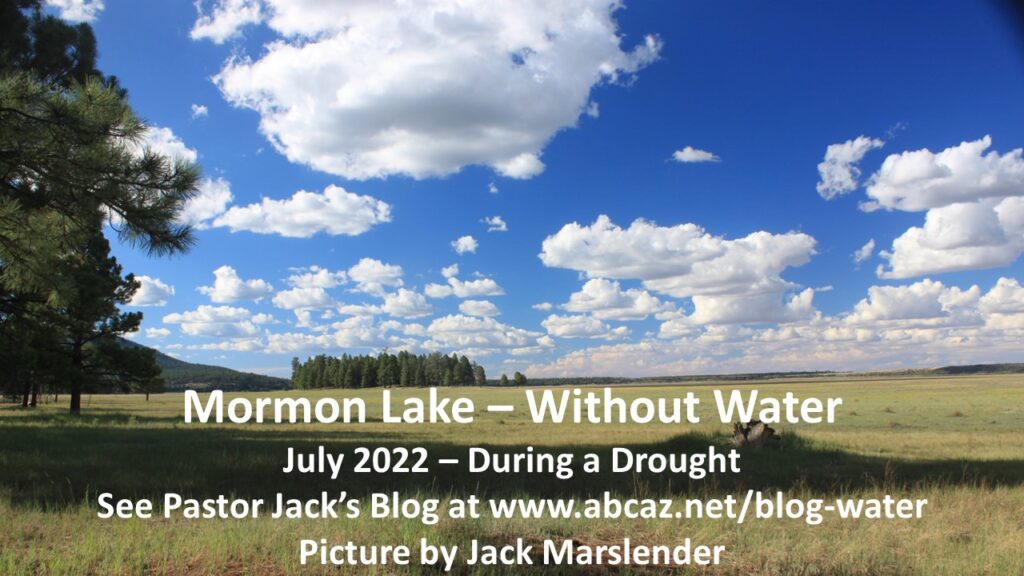
I’m a pastor and so I’m primarily concerned with spiritual matters, and I focus on teaching people to love God, love people, and follow Jesus. But that does not mean that I am unconcerned with physical and practical matters. The truth is that I love Arizona and the people of Arizona and I want this state to continue to be a great place to live and work and raise a family.
For that to happen, we must solve our water crisis.
So there are some obvious questions that need answers. All desert dwellers should think through these questions, but I specifically challenge the leaders of Arizona and candidates for leadership to provide real answers to these specific questions. The questions—never mind the answers—are by their nature sensitive and even controversial, and for that reason, I understand that it is not easy to publicly ask them.
But these questions must be asked.
If the questions themselves are controversial, then the answers—no matter what those answers are—will result in an avalanche of anger. There will be—and should be—fierce debate. If serious changes are suggested, there will be major protests—it’s inevitable. And we will need to listen to the protests and the critics—they may very well have valid points that need to be addressed.
Asking and answering these questions will result in serious consequences. But there will be even more serious consequences if we don’t.
So Governor Ducey, Senators Sinema and Kelly, Congressmen and Congresswomen and members of the Arizona State Senate and House, how will you answer the following questions? And candidates for Governor Katie Hobbs and Kari Lake, how will you answer?
- Is desert farming sustainable in the future? And if so, what changes to practices and laws need to be made to make farming in the desert as water efficient as possible? And who should make those changes? Is this a federal, state, or local issue?
- Are grass lawns sustainable and even ethical in the desert? Should we limit their use to public areas such as parks and schools? Does the typical pattern of summer Bermuda and winter Rye even make sense in a desert? If we decide that lawns are not sustainable, how do we make the change, especially for those who currently have lawns?
- Are swimming pools sustainable and even ethical in the desert? Should new pools be limited to public pools? If they are not sustainable, then how do we implement that change? And what should we do about those who already have pools?
- Should the cost of water rise to discourage use due to its scarcity? And if so, how do we do raise prices in a way that does not hurt low-income households?
- Should cities and counties update their building codes to require more efficient use of water? What changes would help and how much would they add to building costs? Can the state mandate this, or is it a city-by-city process? What cities will take the lead?
- Are any of the proposed long-term solutions to increase the amount of water—such as piping water long distances or building desalinization plants or reusing water—even practical and possible? How do we overcome the environmental issues and energy costs in these solutions? And since these solutions will require more time than we have, what do we do in the meantime?
- What other questions should we be asking?
I understand what I’m doing. I’m calling for leaders to lead.
I know that some of our leaders have allocated money to this issue—and I thank them for that—but this is not primarily a money issue. We can’t purchase water on the open market; it’s simply not available. The growing shortage of water is a very real crisis that must be dealt with quickly. The leadership that will be required will not be easy and it will bring out an abundance of real critics and even enemies.
So, Arizona leaders, are you ready to lead? Are you ready to ask—and answer—the tough questions?
Asking and answering the tough questions—and then implementing the necessary changes—is the heart of leadership.
Will you lead?
